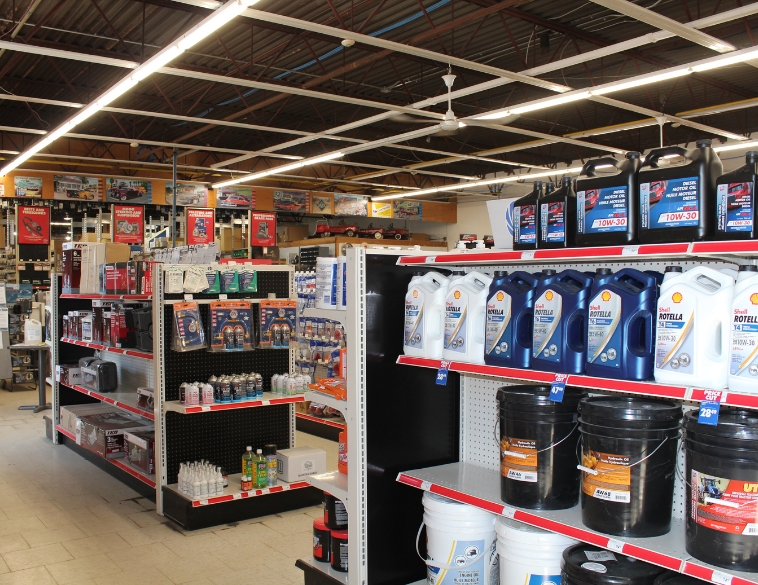Autosphere had some questions concerning oils and lubricants and Maggie Davison and Nick Bintas were tagged again to get their comments on these products.
How have modern vehicle lubricant requirements (such as specialty oils) impacted your business over the last decade?
Nick: Jobbers in the last decade are stocking a variety of different specs in different grades to service their customer base, it’s become very difficult for the average shop to stock all the different specs required to service their customers’ vehicles therefore depending on their local jobber to service that requirement.
Maggie: Being in the automotive trade for over 40 years, I recall having lots of oil in stock, but the flavours and grades were a lot fewer than they are in today’s market. Now with synthetic grades being used in newer vehicles, stocking the necessary flavours has led to the demand for more in inventory. Supply issues have been seen in some oil companies leading me to outsource from my main supplier.
What do you feel is the best approach when it comes to stocking the right specialty lubricants and ensuring your customers are able to obtain them when needed?
Nick: As jobbers, we need to stay on top of any new spec that comes out in late models, we rely on the brands we stock to update and inform us when a new spec/grade becomes available.
Maggie: The increase in electric vehicles has not significantly impacted my business currently. However, I believe this will change and we will need to change with it.
How do you feel current economic conditions are impacting specialty lubricant demand – higher prices as a result of inflation etc., deferred repairs and maintenance from motorists?
Nick: I believe consumers will fix/repair only what is necessary, but still feel regular scheduled oil changes will continue accordingly.
Have you seen any disruptions in supply for specialty lubricants and if so, what do you feel are some of the best strategies to help deal with these issues?
Nick: Lubricants have also been impacted by supply issues and have had the biggest price increases in the last few years compared to other categories in the automotive aftermarket. Jobbers will need to stock more oil to stay competitive and have the product in stock.
With trends pointing to more people keeping their vehicles longer, how do you think that will translate to specialty lubricant demand, especially given current price pressures and a potential recessionary environment?
Nick: Consumers will continue to change their oil to maintain the longevity of their vehicle regardless of its age, therefore this category will stay strong in revenue into 2023.
Maggie: With COVID hopefully behind us, moving forward is and will be challenging. The economy is in an economic downturn—the consumers are keeping their vehicles longer and getting quotes for repairs from various shops. As I’ve said before, we need to be able to supply ALL the parts and the service to our shop—this will always be a priority for my team and I!



